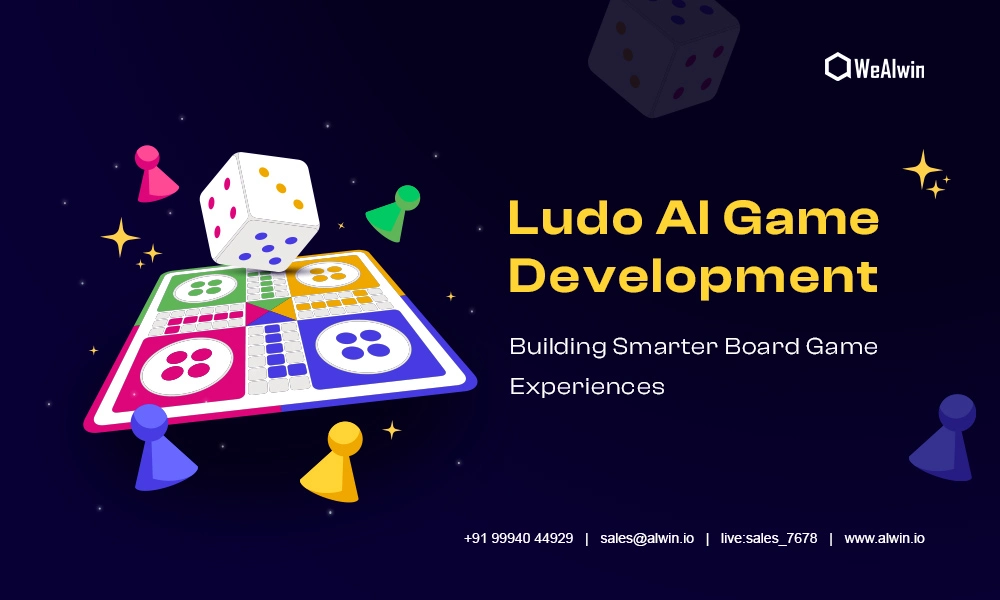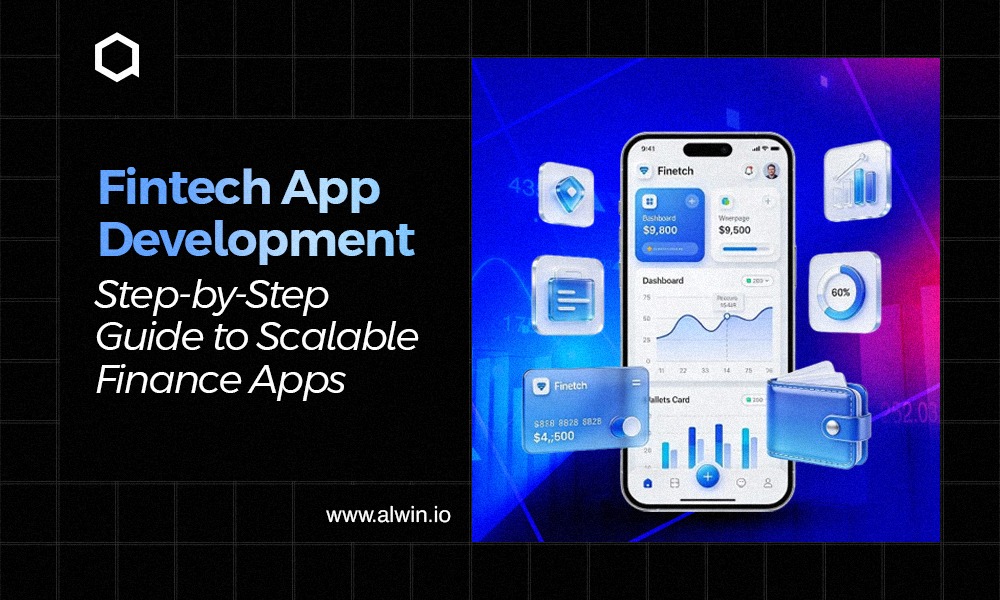Ludo is a traditional board game that has been a source of amusement for generations. But what if Ludo could be even more exciting and engaging? What if it could be played against intelligent opponents who would challenge you to your limits?That's where Ludo AI game development comes in by combining the power of artificial intelligence with the excitement of Ludo.
This article is to explore the potential of Ludo AI game development and take a look at some of the exciting projects that are already underway in this space. So if you're interested in the future of gaming, be sure to read on!
Ludo AI Game Development
Ludo AI Game Development is an AI-powered platform that helps game developers and designers with the ideation, development, and marketing of their games. It uses machine learning and natural language processing to generate game concepts, assets, and marketing materials. Ludo AI game development combines the traditional board game Ludo with cutting-edge technology. It introduces Artificial Intelligence (AI) into the game to create smarter, more engaging gameplay experiences.
The Role of Blockchain in Ludo AI Games
Blockchain technology plays a pivotal role in the evolution of Ludo AI games, offering several key advantages.
Decentralization: Blockchain is a decentralized ledger, which means that it is not controlled by any single entity. This makes it ideal for gaming applications, as it can help to prevent fraud and ensure the fair and transparent distribution of rewards.
Immutability: The data recorded on the blockchain cannot be expunged. This makes it ideal for storing game records and ensuring that they cannot be tampered with.
Transparency: It is a transparent ledger, which means that all transactions are visible to everyone on the network. This can help to build trust and confidence among players.
Security: It is a secure technology, which can help to protect players' data and assets.
Efficiency: Blockchain can help to streamline game transactions and reduce the need for intermediaries, which can lead to lower fees and faster processing times.
Here are some specific examples of how blockchain can be used in Ludo AI games:
Storing game records: Blockchain plays a pivotal role in storing game records, such as the results of games, player statistics, and in-game items. This data would be tamper-proof and transparent, which could help to prevent cheating and ensure fairness.
Rewarding players: It can be used to reward players for their in-game achievements. This could be done through the use of cryptocurrency or other digital tokens.
Creating a marketplace: By employing blockchain, you can create a marketplace where players can buy, sell, and trade in-game items. This could help to create a more vibrant and active gaming economy.
Providing access to new features: It can be optimized to provide players with access to new features, such as tournaments or exclusive content. This could help to keep players engaged and motivated.
Key Components of Ludo AI Game Development
Game design: The game design is the most important component of Ludo AI game development. It is important to define the rules of the game carefully, so that the AI can be developed to play the game correctly. The goals of the players should also be clearly defined, so that the AI can be developed to compete against the players effectively.
Art and animation: The art and animation of the game should be visually appealing and engaging. The characters, backgrounds, and objects should be designed in a way that is consistent with the overall theme of the game.
Audio: The audio of the game should be immersive and atmospheric. The sound effects should be used to enhance the gameplay experience, and the music should set the mood for the game.
AI: The AI is responsible for controlling the game's opponents. It is important to develop AI to be challenging but fair. The AI should also be able to learn and adapt over time, so that it can become more difficult to defeat.
Building a Ludo AI Game on Blockchain
The steps to build Ludo AI games with blockchain integration include:
Choose a blockchain platform: There is an availability of various blockchain platforms encompassing their own uniqueness. Some popular options include Ethereum, Binance Smart Chain, and Solana.
Develop the game logic: The game logic is the code that controls the gameplay. This includes things like the rules of the game, the AI of the opponents, and the scoring system.
Integrate the blockchain: The blockchain will be used to store the game records and assets. This includes things like the results of games, player statistics, and in-game items.
Deploy the game: Once the game is developed and integrated with the blockchain, it can be deployed so that players can access it. The game can be deployed on a variety of platforms, such as mobile devices, computers, and consoles.
Consult with our business experts to know more about Ludo AI Game Development! Chat with us on WhatsApp
Player Experience and Engagement
Immersive Gameplay: AI opponents in Ludo AI games provide a human-like challenge, ensuring players are fully engaged, even when playing alone.
Ownership and Rewards: Through blockchain integration, players gain true ownership of in-game assets, such as unique characters or items. This sense of ownership and the potential for asset trading enhance player engagement.
Social Interaction: Multiplayer modes and chat features foster social connections among players, encouraging continued participation.
Progression Elements: Reward systems, achievements, and level progression keep players motivated, providing a sense of accomplishment.
User-Friendly Design: An intuitive user interface ensures players can easily navigate the game, contributing to a positive experience.
Case Studies
Several Ludo AI games have successfully harnessed blockchain technology, transforming the gaming landscape. Let's explore a few notable examples and their impact on user adoption:
1. CryptoLudo: By incorporating blockchain for asset ownership, CryptoLudo attracted a passionate player base. The ability to trade in-game assets as NFTs added uniqueness to the gaming experience, driving user adoption
2. LudoAI Master: This game leveraged AI for dynamic gameplay and blockchain for transparent outcomes. Players embraced the fairness and security, leading to rapid user adoption and positive reviews.
3. LudoChain Challenge: With cross-game asset integration, LudoChain Challenge empowered players to use their assets in various blockchain-based games, promoting a thriving gaming ecosystem.
The impact of these games on user adoption has been significant, showcasing the potential of Ludo AI games combined with blockchain for a more engaging and trusted gaming experience.
Future Trends in Ludo AI Game Development
The future of Ludo AI game development holds exciting prospects, driven by technological advancements and changing player preferences:
1. Enhanced AI Algorithms: Expect AI opponents to become even more sophisticated, adapting to players' strategies, and offering unique challenges.
2. Metaverse Integration: Ludo AI games may join the metaverse, allowing players to interact with their in-game assets across various virtual worlds.
3. VR and AR Integration: Virtual Reality (VR) and Augmented Reality (AR) elements could immerse players in the Ludo board, offering new dimensions of gameplay.
4. Cross-Platform Play: The ability to play Ludo AI games seamlessly across different devices and platforms will become standard, promoting inclusivity.
5. Blockchain Expansion: Blockchain's role will expand, with more games offering NFT-based in-game assets, fostering a player-driven economy.
6. Data Analytics: AI-driven data analysis will provide insights into player behavior, enabling game customization and personalized experiences.
Conclusion
As we look forward, the evolution of Ludo AI games promises an ever-enriching experience. Anticipate the growth of AI capabilities, augmented reality integration, and a thriving blockchain-driven ecosystem for in-game assets.
Ludo AI games have successfully preserved tradition while adapting to the digital era, ensuring that players across generations can continue to enjoy this timeless game in a technologically enriched form.



